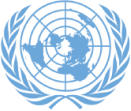Security Council
Briefing on ICC Libya
9 November 2016
Statement
Mr. President,
We thank Ms. Fatou Bensouda, Prosecutor of the International Criminal Court, for the presentation of the 12th Report, as mandated by Resolution 1970 (2011).
The political and security situation in Libya remained critical during the reporting period, despite the efforts of the Presidential Council of the Government of National Accord.
We reiterate our appeal to all political actors in Libya to join their efforts, in constructive fashion, with determination, courage and good will, towards the efforts being led by the Government of National Accord.
The political impasse has weakened the efforts of the Government to face the chaotic security situation, the economic crisis and the growing impunity of terrorist groups and armed militias against the civilian population.
We take note with concern, of the information presented by the Deputy High Commissioner for Human Rights, Ms. Kate Gilmore, on the 27th of September, regarding Libya, during the 33rd session of the Human Rights Council.
In this presentation, she outlined that heavy armament continues to be transferred to residential areas throughout the country, armed groups act with total impunity, and thousands of people are arbitrarily kept in detention centers.
Also, migrants, refugees, and asylum seekers are arbitrarily detained, with various reports indicating abuses perpetrated against these groups, such as summary executions, torture and other mistreatment, sexual abuse, extortion, and forced labor. These situations constitute flagrant violations of human rights and international humanitarian law.
However, the institutional and political context of Libya, does not offer the necessary conditions to investigate and prosecute the authors of these atrocious crimes that, according to the Statute of the ICC, fall under national jurisdiction. We believe that currently, in Libya, the conditions to apply the necessary judicial process are non-existent.
Mr. President,
We welcome the information contained in the report of the Ombudsperson of the ICC, by which, on the 31st of August 2016, the Misrata-Tawergha Accord was signed, concerning the return of displaced peoples and compensation for the affected communities.
It is highly commendable that the signatories of this accord, expressed their desire to achieve peace, justice and reparations, establish the rule of law, and contribute to efforts which seek to avoid the repetition of past mistakes for future generations. We strongly encourage other initiatives of this kind, to improve the lives of the population of Libya.
To conclude Mr. President, we reiterate our view that only in an environment of peace and stability, can a functioning judicial system and functioning judicial institutions be established. Therefore, we reiterate our support to the United Nations and the International Community, in the implementation, with the relevant actors, of the National Accord of Libya, for the establishment of a lasting peace and accountability of all those responsible for perpetrating violent crimes and human rights violations.
Thank you.


